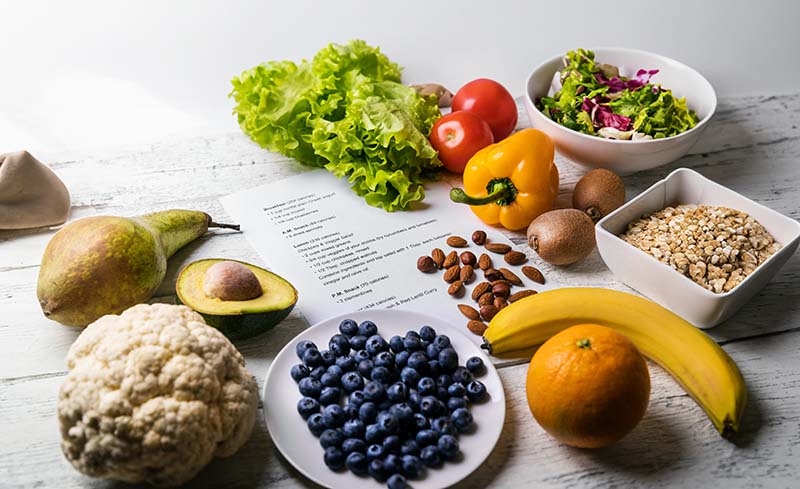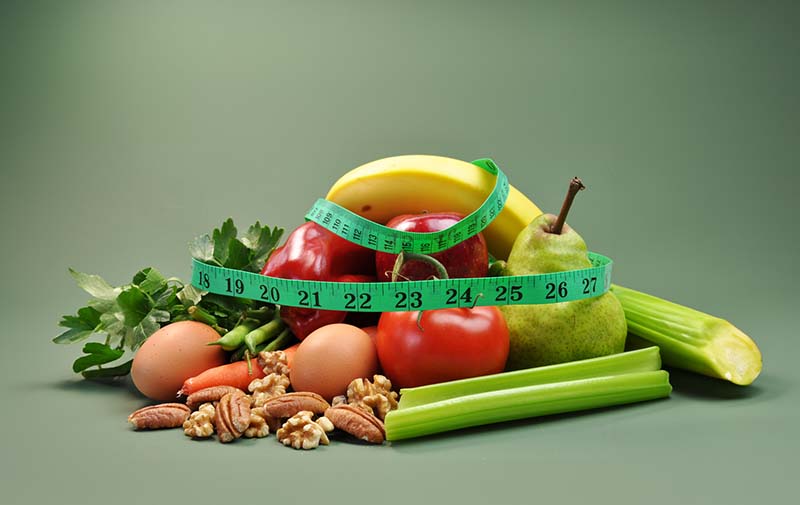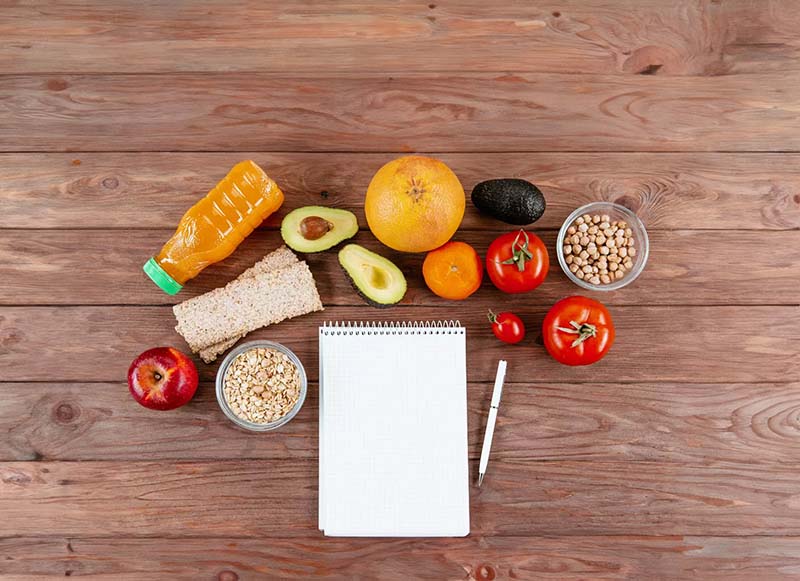What is the hCG diet? Recent data from the National Health and Nutrition Examination Survey shows that 17.4% of U.S. adults over 20 follow a specialized diet, mainly low-calorie and low-carb for weight loss, shifting from older low-fat trends. The hCG diet, existing since the 1950s and known for quick weight loss with a very low-calorie plan, is gaining attention alongside popular diets like ketogenic and Dukan. This article will learn about the hCG diet, exploring its safety and effectiveness based on expert insights.
1. What Is hCG Diet?
The hCG diet involves eating very few calories each day – usually between 500 to 800 – and taking extra hCG, a type of hormone. Dr. Albert T. Simeons, a British doctor, started recommending this diet in the 1950s for losing weight. He said that the hCG diet helps burn fat, not muscle, and shared stories of people losing 20 to 30 pounds in about a month and a half, without feeling hungry or tired.

2. The Role of hCG in the Body
hCG, short for human chorionic gonadotropin, is a hormone made of protein that’s important during pregnancy. It signals to a woman’s body that she is pregnant. This hormone plays a key role in keeping up the levels of other crucial hormones like progesterone and estrogen, which are vital for the growth of the embryo and fetus. As the pregnancy progresses, particularly after the first three months, the amount of hCG in the blood starts to go down.
3. The Connection Between hCG and Weight Loss
The hCG diet once gained popularity among those looking to lose weight. However, it’s a diet that’s sparked much debate, not just for its effectiveness but also for its safety.
This diet involves eating only 500 calories each day for a few weeks, while also taking the hCG hormone daily, either through injections or other methods.

There’s no solid proof that the hCG hormone helps speed up metabolism or effectively treats obesity. The diet’s fame largely came from health enthusiasts and businesses selling supplements, who claimed it was highly effective for shedding pounds.
4. Principles of the hCG Diet
The hCG diet is known for being very low in fat and calories. This diet typically has three stages:
- Loading phase: Begin with hCG and for two days, eat lots of high-fat, high-calorie foods.
- Weight loss phase: Keep using hCG, but limit yourself to just 500 calories each day. This lasts between 3 to 6 weeks.
- Maintenance phase: Stop using hCG. Slowly increase how much you eat, but stay away from sugar and starch for three weeks.
During the weight loss stage, you’re allowed only two meals a day, which are usually lunch and dinner.
5. Pros and Cons of the hCG Diet
The hCG diet is a weight management strategy that involves the use of hormone supplements in conjunction with an extremely low-calorie diet, aiming for swift weight reduction. Here are the benefits and limitations of the hCG diet:
5.1 Benefits of the hCG Diet
- Targets Fat Loss: Injecting hCG into your body stimulates it to burn fat, specifically adipose tissue. Following a calorie-restricted diet with hCG injections can lead to losing about a half to one pound daily.
- Whole-Body Fat Reduction: The hCG injection targets fat throughout the body, including the chin, neck, arms, and thighs. This hormone helps in reducing fat in areas typically resistant to regular dieting.

- Reduces Hunger: A common challenge with low-calorie diets is constant hunger. As an appetite suppressant, hCG helps you feel full, drawing nutrients from stored fat and breaking the cycle of overeating while dieting.
- Quick Results: The hCG diet works faster than many other diets, without the need for intense exercise. A simple low-calorie diet with hCG can lead to losing about 25 to 30 pounds in a month.
5.2 Limitations of the hCG Diet
The hCG diet has several limitations that should be carefully considered before starting the program. Some of the key limitations and concerns associated with the hCG diet include:
Potential Nutrient Deficiencies
Groves Azzaro, a women’s health dietitian, points out that the hCG diet’s limited food options increase the risk of nutrient deficiencies. It cuts out key food groups like starchy vegetables, grains, legumes, and fats, which are important sources of B vitamins, fiber, and fat-soluble vitamins like A, D, E, and K.
Concerns About Food
Acceptable foods on the hCG Diet include:
- Approved Vegetables: Spinach, chard, beet greens, cabbage, lettuce, broccoli, tomatoes, onions, or radishes, in limited servings.
- Approved Fruits: Only certain fruits like berries, citrus, and apples are allowed, once at lunch and dinner.
- Coffee, Tea, and Water: Unlimited, but only one tablespoon of milk per day is allowed.

Unsustainable Long-Term Weight Loss
A 2017 study in Perspectives on Psychological Science found that while low-calorie diets lead to short-term weight loss, they aren’t sustainable long-term. The study highlighted the negative effects on metabolism and hormones, urging further research into more sustainable weight control methods beyond just calorie reduction.
6. Is the hCG Diet Safe?
The clear answer is no. This view is shared by women’s health experts Melissa Groves Azzaro from The Hormone Dietitian, Kendra Tolbert from Live Fertile, and Manaker. They all agree that the diet, which cuts down your daily food intake to only 500 calories (which is way less than what most people need), isn’t a good idea. Although you might lose weight fast at the beginning, this kind of weight loss won’t last because your body’s metabolism will slow down.
Note: Cutting down on calories too much can be bad for your health. Losing weight in a healthy way usually means eating a balanced diet and getting regular exercise. Quick solutions like eating very little can give fast results, but they’re not good for your health in the long run. It’s always best to talk to a healthcare professional before starting any diet, especially one that cuts your calorie intake by so much.
7. Potential Side Effects of the hCG Diet
The hCG Diet can have several harmful side effects that could endanger your health. Here’s a summary of these potential risks:

- Quick Weight Loss: The hCG Diet’s rapid weight loss comes from extreme calorie cutting. While this is why some people choose the diet, losing weight too fast can do more harm than good. Such weight loss is often not lasting, and there’s a high chance that any weight lost will be gained back.
- Central Nervous System Issues: Research links the use of hCG to several central nervous system problems, such as headaches, irritability, restlessness, and tiredness. There are also reports of more severe issues like depression and aggressive behavior.
- Sleep Problems: Sleep disturbances, including waking up at night (nocturia) and difficulty falling asleep (insomnia), are common complaints among those on the hCG Diet.
- Heart Problems: Following the hCG Diet can lead to protein loss from the heart muscle. Combined with nutritional deficiencies, this can result in an irregular heartbeat. If you experience this, it’s important to contact a healthcare professional immediately.
8. Should You Try the hCG Diet?
Your choice to follow a diet with a sudden drop in calories should be made carefully. While cutting calories quickly might lead to weight loss, the risks are clear and serious. The dangers of extremely low-calorie diets, popular in the 1970s, have been proven in various studies. For example, a study in the American Journal of Clinical Nutrition in 1981 reported 17 cases where overweight individuals who quickly lost a lot of weight on such diets unexpectedly passed away from heart problems after about five months of dieting.
9. Considerations Before Starting the hCG Diet
Before choosing this diet, understand that following its strict calorie restriction is tough. Living on just 500 calories a day isn’t just uncomfortable, it can also be harmful. With so few calories, you won’t be able to get all the nutrients your body needs. This includes not getting enough protein. If your daily calorie intake is below 1,200, it becomes hard to get the necessary vitamins and minerals without taking supplements.
10. Key Takeaway: The hCG Diet
Reflecting on the journey of understanding the hCG diet, it’s clear that this approach to weight loss is not without its complexities and health considerations. For those who have embarked on this diet, your experiences and insights are invaluable. We encourage you to share your stories and feedback, as they can serve as a guiding light for others contemplating this path. Additionally, for a deeper exploration into various dietary approaches, including more on the hCG diet, do visit Diethcg.co.nz. Our website is rich with information and blogs that could support and enrich your health and wellness journey. Share your experiences with us and continue to discover more on our site!


